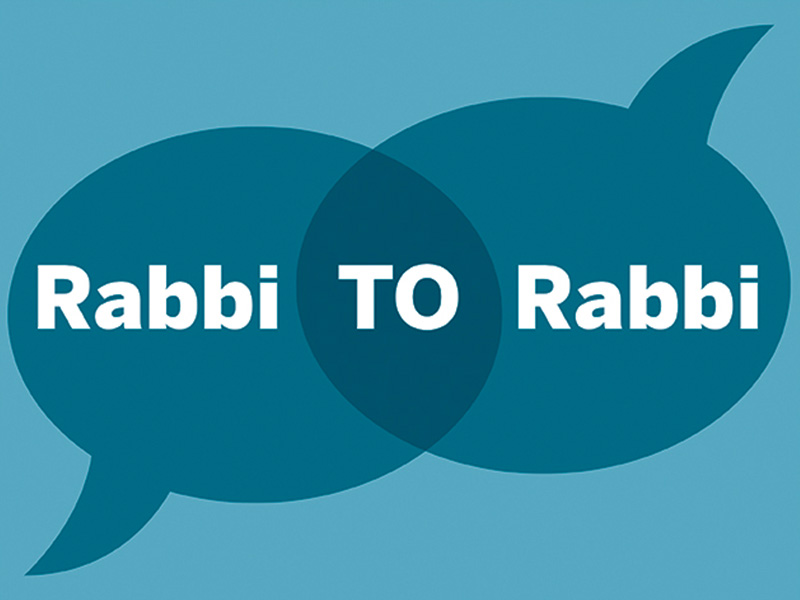Rabbis and synagogues have a role to play in connecting their communities with the Jewish state, and increasing the depth of that engagement
Rabbi Adam Cutler
Beth Tzedec Congregation, Toronto
Rabbi Adam Scheier
Congregation Shaar Hashomayim, Montreal
Rabbi Scheier: A wise senior rabbi once told me that when hiring a new rabbi, a congregation should ask the candidate if he or she plans, at some point in the future, on making aliyah to Israel. If the candidate does not aspire to live in Israel, the rabbi told me, then the candidate is unfit to lead a congregation of Diaspora Jews. While this position might seem extreme to some, the underlying point resonates with me. Even as our feet are firmly planted in Canada, our hearts yearn for Israel.
This message, however, becomes increasingly challenging to convey as the Jewish community’s attitude to Israel becomes more complex. We see that more and more North American Jews are feeling alienated from Israel, and as the community becomes less observant and weaker in Jewish identity, support for Israel inevitably suffers.
I see that as a core problem and a challenge to our communal values. What, if anything, can we do to ensure that identifying with Israel remains a central part of our community’s identity?
Rabbi Cutler: It is imperative for all Diaspora synagogues to build relationships between its constituents and the land, people and State of Israel.
I am proud to say that my shul is highly Israel-engaged. For the last eight years, we have participated in the shinshinim program, in which two post-high school Israelis spend a year with our community. Israel is addressed from the bimah and visited on synagogue trips. The more points we can connect with Israel, the more likely the relationship will grow strong.
It’s important to note that all of the above is independent of politics. While I hold personal political leanings, and as appropriate I do share them, I don’t see my objective as getting others to agree with me. Rather, I think it is the role of the rabbi to engage people with Israel and then increase the depth of that connection.
Rabbi Scheier: I, too, am blessed to serve a congregation with a long history of supporting, visiting and championing Israel. I am proud that our love for Israel is a central part of my community’s identity. And I agree with your approach to Israeli politics, in terms of engaging people in the Israel conversation.
However, I return to my original question about maintaining Israel’s relevance to the Jewish People, and allow me to ask the question differently. Rabbi Jonathan Sacks writes about the difference between history and memory. He writes that history is “his story” – the story of another – while memory is “my story.” The Jewish approach requires us to engage history as personal memory. For those of us born after the struggles and wonders of the Jewish State’s birth, we are challenged to translate Israel’s history into shared memory.
How do we turn the identity-forming experiences of a Zionist creation of a state into a memory that will sustain a new generation of Israel supporters?
Rabbi Cutler: With respect, I don’t believe you’re asking the right question.
Certainly, the conversion of history into memory has enabled the Jewish People to forge deep bonds with one another and with the past. Israel, though, is not something that was. Israel is something that is. Our task as community leaders is to connect our communities with Israel and, in so doing, ensure that Israel continues to be.
But self-preservation cannot be an end unto itself. As the homeland of the Jewish People, the State of Israel must intentionally foster a vibrant contemporary Jewish life. It is not only a place for Jews to go to be safe. It is a place where Judaism, in all of its manifestations, should thrive. And despite its difficult neighbourhood, Israel must exemplify Jewish values in the international arena and through its domestic policies.
Connection grows from the heart, not the head. At the same time, as educational institutions, our synagogues must create frameworks wherein all Jews – young and old, hardened Zionists and disenchanted community members – can discuss Israel in a values-based, Jewish-sources-rich, passionate and respectful conversation. Such a framework engages all Jews with Israel. That conversation also builds relationships between our community here and the land, people and state over there.
